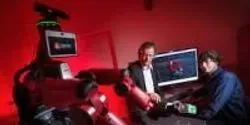Software

Sandia National Laboratories is tackling one of the biggest barriers to the use of robots in emergency response: energy efficiency.

Artel, the leader in liquid handling quality assurance, announced today that the Society for Laboratory Automation and Screening (SLAS) and Artel are working together to produce a conference short course for the 2015 annual meeting in Washington, D.C. “Liquid Handling Essentials – A Hands-on Workshop Bridging Fundamental Concepts to Practice,” will be presented on Saturday, February 7 from 8:30 a.m. to 4:30 p.m.

A Laboratory Information Management System (LIMS) serves as the interface to a laboratory’s data, instruments, analyses, and reports. For many analytical laboratories, a LIMS is an important investment that assists management in evaluating the efficiency of the laboratory’s operations and reducing costs.

Problem: Many service or contract laboratories need to process the same sets of samples on a regularly-scheduled basis. In addition, many processes within factories of various types require collection of samples at pre-set dates and times to ensure the quality of the product being produced. One example is collection of air and surface samples to test the sterility of rooms used in the production of pharmaceuticals, foods, and medical devices. Another example is collection of samples during beer production. The task of logging these samples into a LIMS (laboratory information management system) can be cumbersome and time-consuming and it is easy to miss collection of a scheduled sample. Although these are two entirely different scenarios, both require the same basic scheduling of multiple sample collections.

Most food producers are subject to a broad range of regulations and standards, from industry-wide ones such as ISO 22000 (which sets out several communications and system management guidelines), the United States Food Safety Modernization Act (FSMA) of 2011 and the European Union Regulation (EC) No. 178/2002 to process-specific ones like the Egg Products Inspection Act (EPIA) or the Federal Meat Inspection Act (FMIA).

Complete this quick survey for a chance to win a $50 Amazon gift card.
Click HERE to take this survey on your mobile device

Problem: Achieving successful PCR (polymerase chain reaction) results requires proper control of many factors and parameters. The yield—quantity and quality—of amplified DNA is often essential for downstream applications and ultimately successful completion of experimental research. PCR reagents, consumable sample vessels, and the thermal cycler instrument must all be properly chosen for the specific PCR application, and must also meet quality and performance requirements. In addition to these components that must work correctly in conjunction, sample preparation is typically done manually and must be done with care and accuracy.

Microplate handlers are specialized robotic devices that transfer microtiter plates in three dimensional space from one location within a workflow to another. The “locations” are actually operations such as solvent addition (through liquid handling), aspiration, heating, shaking, incubation, washing, reading, and storage.

SLAS2015 is fast-approaching, taking place February 7-11 in Washington, DC.











